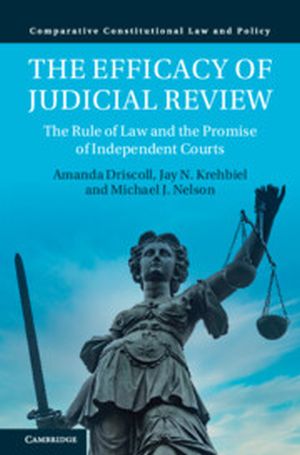
Over the past century, countries around the globe have empowered constitutional courts to safeguard the rule of law. But when can courts effectively perform this vital task? Drawing upon a series of survey experiments fielded in the United States, Germany, Hungary, and Poland, this book demonstrates that judicial independence is critical for judicial efficacy, showing that independent courts are uniquely capable of empowering citizens to punish executives who flout the rule of law, while also demonstrating that weak courts are unable to generate public support for upholding the rule of law.
This important work concludes that, while judicial efficacy is neither universal nor automatic, courts-so long as they are viewed by the public as independent-can provide an effective check on executives and promote the rule of law.